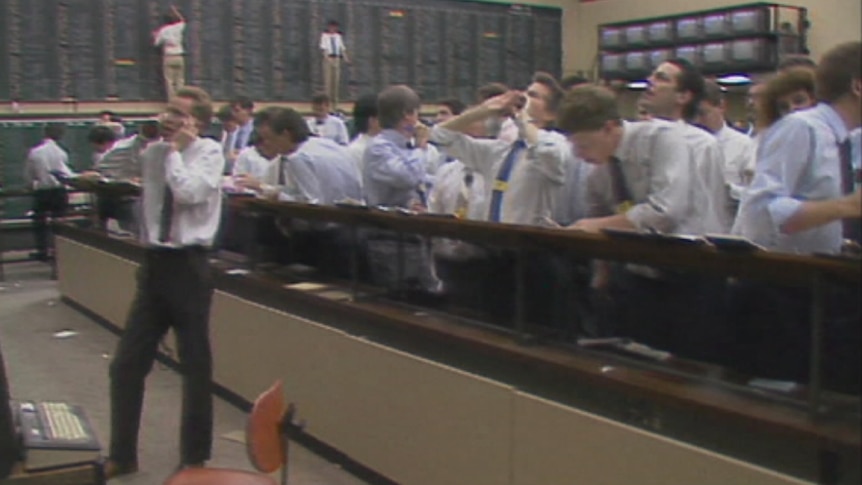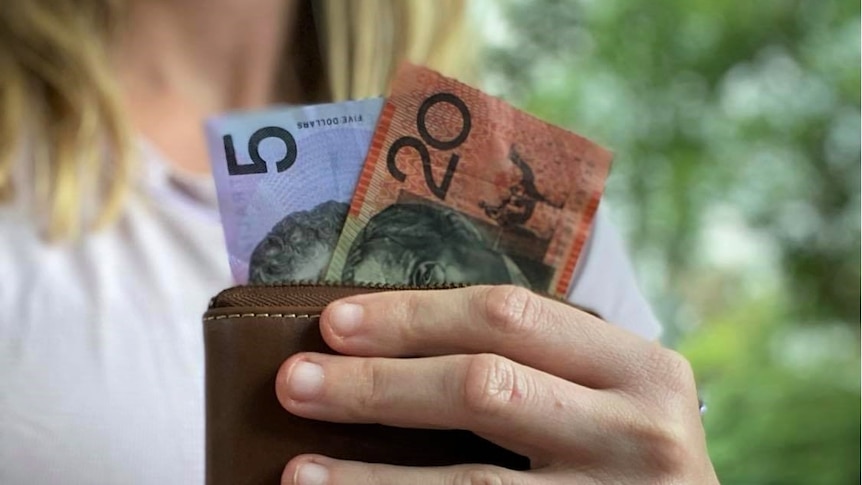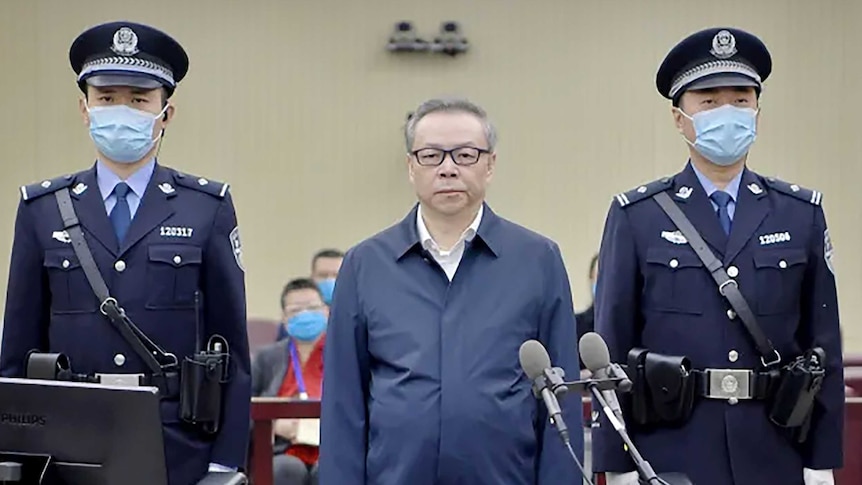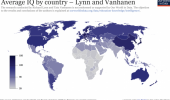Buckle up because global markets are in for a bumpy ride in the days and months ahead
By business editor
Ian Verrender
Posted Yesterday at 1:52amMon 4 Oct 2021 at 1:52am, updated Yesterday at 7:36amMon 4 Oct 2021 at 7:36am
September proved to be the worst month of the year for the ASX.(
ABC News: John Gunn
)
Help keep family & friends informed by sharing this article
abc.net.au/news/buckle-up-global-markets-are-in-for-a-bumpy-ride-in-months-ahead/100511020
COPY LINKSHARE
Financial market gains, they reckon, are built upon a wall of worry.
While there has been much to celebrate in the past year, with the sharp burst out of global recession fuelled by rapidly developed vaccines, the optimism suddenly seems to be evaporating.
Investors have slammed the brakes on the incredible surge on global stock markets that began in March last year.
Australia has been among the hardest hit, as crashing iron-ore prices have exacted a heavy toll on our biggest miners.
Problems, however, are emerging on a number of fronts. And it's not just the toll the Delta variant is exacting on growth.
In no real order, they are as follows: the disruption to global trade from shipping constraints; a rapidly emerging energy crisis; serious concerns about China's property market and its entire growth model; and an escalating dispute within the US Congress that threatens to destabilise the global economy.
Berkshire Hathaway CEO Warren Buffett is among those experts anticipating a market correction.(
REUTERS/Rick Wilking
)
Oh, yeah ... did we also mention hints from the world's biggest central banks they are becoming increasingly worried about the huge amounts of money they are injecting into the economy, amid concerns it all might backfire?
For months, there have been warnings from major global investors that the nosebleed valuations on markets from New York to New Delhi could not be sustained. Everyone, from the 91-year-old legendary investor Warren Buffet down, has been concerned about an impending correction.
While markets certainly have turned bearish, their fears have so far been allayed by the sheer weight of cash pouring out of central banks and into financial markets.
That has helped superannuation funds here and around the globe deliver sterling returns to members, off the back of booming stock and property markets. But those easy gains appear to have evaporated and investment managers will find it tough to deliver the kind of returns we have just witnessed in the year ahead.
The great October crash
Stockbrokers call out share trades during the Black Tuesday crash of 1987.(
ABC News
)
September is usually the worst-performing month for stocks, and this year was no exception. October, however, has the distinction of being the month that has hosted some of the greatest market collapses in modern history.
The Wall Street crash of 1929, Black Tuesday in 1987 and the Asian Financial Crisis Crash in 1997 all occurred in October. While Lehman Brothers collapsed in September 2008 — sending global markets into a tailspin — the losses accelerated through October.
Black Tuesday share crash

The 1987 share crash wiped out fortunes and empires. The Business asks those who were there — brokers, corporate raiders and the treasurer — what went wrong and what they learnt.
Read more
Coincidence? Maybe. There is no rational argument explaining the phenomenon. But traders with any sense of history recognise the pattern and almost every year the tension builds.
While we ended September on a surge after a rocky four weeks, last Friday heralded the start of a new month and a new quarter with a thumping nosedive that helped erase four and a half months of gains.
Even though we are likely to see some Monday morning gains after a decent lift on Wall Street last Friday, the fear index is rising.
While there is a multitude of concerns, it can all be distilled down into two key issues: Global growth is slowing while inflation is being fanned by shortages of almost everything. In particular, energy prices have soared, threatening to push prices higher, for everything from food to construction.
Investors are concerned that a combination of geopolitical factors could further unsettle global markets.(
AP: Courtney Crow
)
That is a lethal combination, known in the trade as stagflation, a phenomenon we haven't seen since the 1970s.
It is the kind of economic puzzle that leaves governments and central banks in a quandary.
Inflation needs v wants

New analysis from the Australian Bureau of Statistics confirms what many Australians have long suspected — the low overall rate of inflation is masking a more dramatic rise in the cost of necessities.
Read more
Normally, inflation only emerges when growth is strong. Ease off on the growth throttle and you fix your inflation problem. In this situation, however, with growth slowing as the Delta variant continues to wreak havoc, pulling back on stimulus could see economies tank.
Do nothing, and inflation may wreak havoc, forcing central banks to raise interest rates prematurely. And, in a world drowning in debt, that could be equally devastating.
For now, every central bank, from the US Federal Reserve to the Bank of England and our own Reserve Bank, is singing from the same song sheet.
The price rises are temporary, they insist. There will be no need for rate hikes for years. But markets are jumpy and traders are nervous.
The economic pincer
Acute energy shortages across China are affecting economies across Asia and beyond.(
AFP
)
Oddly, much of the energy shortages around the globe are the result of extreme weather conditions. Europe endured a prolonged and harsh winter this year, leaving gas in short supply, with Russia reluctant to help top up stockpiles. Gas prices have risen to their highest in seven years.
Oil prices last week topped $US80 ($110) a barrel for the first time in three years, again on tight supplies. And coal prices have soared to record levels as energy shortages across China play havoc with global markets.
Can China afford a default?

China's economy is experiencing serious growing pains. And for the first time, it must confront a future where there are no more easy gains to be had, writes Ian Verrender.
Read more
That has been compounded by soaring shipping costs, now four times higher than earlier this year, as bulk carriers line up outside ports around the world, hit by delays caused by Delta-variant forced port closures and a series of unrelated events including
this year's closure of the Suez Canal caused by a stricken vessel.
In an interconnected global economy, shipping and energy are vital components. And the problems with both are taking far longer to fix than previously thought.
On the other side of the equation, the slowly sinking China Evergrande — the world's most indebted property developer with liabilities of $US300 billion — began listing dangerously last week after it
reportedly failed to meet its second interest payment in a fortnight.
Property and infrastructure construction has been the engine driving China's growth for more than a decade. It accounts for around half of all Australian iron ore imports, which explains the halving in prices in recent months.
Even if Beijing steps in to bail out the group to avert a domestic banking crisis, there is no guarantee global investors will be included.
That still leaves a massive hole in Beijing's long-term economic strategy. It has a rapidly ageing population, thanks to the one-child policy in the 1980s, and no real alternative to maintain momentum.
How to score political points and blow up the economy
President Joe Biden faces the alarming prospect of the US running out of money later this month.(
AP: Melina Mara
)
With all the ructions in China, a far more messy situation has been developing on the other side of the Pacific.
AUKUS, France and nuclear submarines may have been grabbing the headlines, but there are more pressing matters at hand in Washington right now.
In two weeks from today, America will run out of cash. The country needs to raise its self-imposed debt ceiling. Otherwise, it will default on its debts on October 18.
This week in US politics
As the world's biggest economy and the global reserve currency, such an event would be an economic calamity, dwarfing any problems related to China Evergrande's predicament.
Republicans are once again refusing to agree to lift the debt ceiling limit, despite adding close to $US4.5 trillion ($6.2 trillion) in debt during the Trump administration through tax cuts and COVID-inspired spending. Since 1944, the ceiling has been lifted 104 times, mostly by Republican administrations.
Until now, markets mostly have ignored the skirmish within Washington, confident a resolution similar to the one nutted out in 2011 under President Obama will emerge at the eleventh hour.
But there never are any guarantees. Just one more brick to add to the wall.
Posted Yesterday at 1:52amMon 4 Oct 2021 at 1:52am, updated Yesterday at 7:36am








